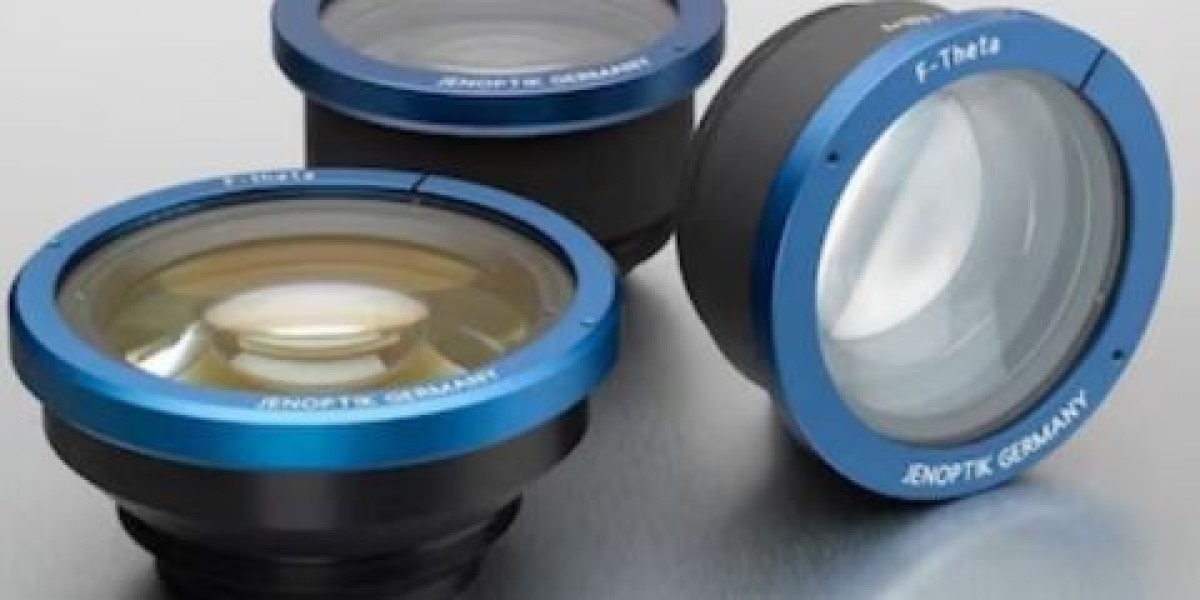In the world of laser technology, precision and efficiency are paramount. One of the critical components enabling these qualities is the F-theta lens. From industrial manufacturing to scientific research, F-theta lenses are indispensable for achieving accurate laser beam delivery across a wide range of applications.
What is an F-Theta Lens?
The F-theta lens, also known as a flat-field or scan lens, is an optical lens designed to project a laser beam onto a flat surface with consistent spot size and minimal distortion. Unlike traditional lenses that focus beams into a single point, F-theta lenses ensure that the focal point remains equidistant across the field, making them ideal for applications requiring uniform laser performance over a large area.
Key Applications of F-Theta Lenses
F-theta lenses play a pivotal role in various laser systems, including:
Laser Marking and Engraving:
Precision is vital in laser marking and engraving. F-theta lenses ensure that the laser beam maintains consistent intensity and focus, enabling intricate designs and high-quality marks on diverse materials like metals, plastics, and glass.Laser Cutting:
In laser cutting, maintaining consistent energy distribution across the target area is crucial. The F-theta lens ensures smooth and precise cuts, enhancing productivity and reducing material waste.Laser Scanning:
F-theta lenses are used in laser scanners for rapid and accurate beam movement, especially in applications such as barcode scanning, 3D imaging, and medical diagnostics.Micromachining:
High-precision micromachining processes, such as drilling or etching tiny features, depend on the consistent beam delivery provided by F-theta lenses.
How Does an F-Theta Lens Work?
The F-theta lens works by correcting the laser beam path so that the focal length is proportional to the scan angle. This correction ensures that the beam is evenly distributed across the surface, creating a flat focal field.
This functionality is particularly useful in galvo scanning systems, where the laser beam needs to move rapidly and uniformly over a large area. Without an F-theta lens, the focal point would distort, resulting in uneven marking or cutting.
Benefits of Using F-Theta Lenses
Enhanced Precision:
By maintaining a flat-field focus, F-theta lenses allow for consistent laser performance, ensuring high-quality output.Increased Efficiency:
These lenses minimize distortion, reducing errors and enhancing productivity in laser applications.Versatility:
F-theta lenses are compatible with various wavelengths, making them suitable for use with different laser types, such as CO2 lasers, fiber lasers, and UV lasers.Durability:
Made from high-quality optical materials, these lenses are designed to withstand high laser power and harsh industrial environments.
Choosing the Right F-Theta Lens
When selecting an F-theta lens for your laser system, consider the following factors:
- Laser Wavelength: Ensure the lens is optimized for the specific wavelength of your laser source.
- Scan Area: Choose a lens with the appropriate scan field size for your application.
- Material and Coating: Opt for lenses with anti-reflective coatings and durable materials to enhance performance and longevity.
- Focus Spot Size: Select a lens that meets the precision requirements of your task.
Maintenance Tips for F-Theta Lenses
To maintain optimal performance:
- Clean the lens regularly using recommended cleaning solutions and techniques.
- Protect the lens from dust, debris, and temperature fluctuations.
- Inspect the lens periodically for scratches or damage, which can impact laser performance.
Conclusion
The F-theta lens is a cornerstone of modern laser technology, offering unparalleled precision and versatility. Whether you're engraving intricate designs, cutting materials with accuracy, or scanning with speed, the F-theta lens ensures that your laser system delivers consistent and high-quality results.



